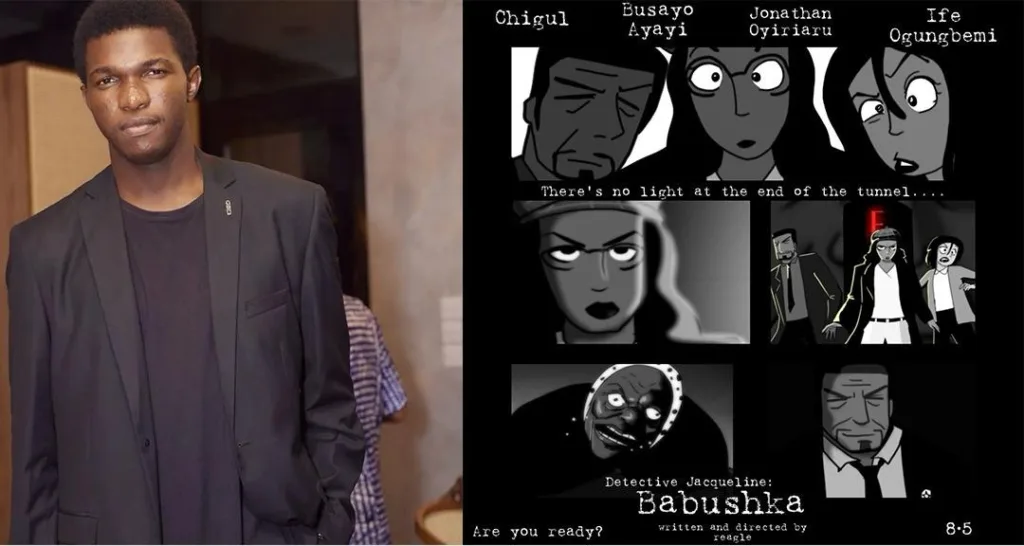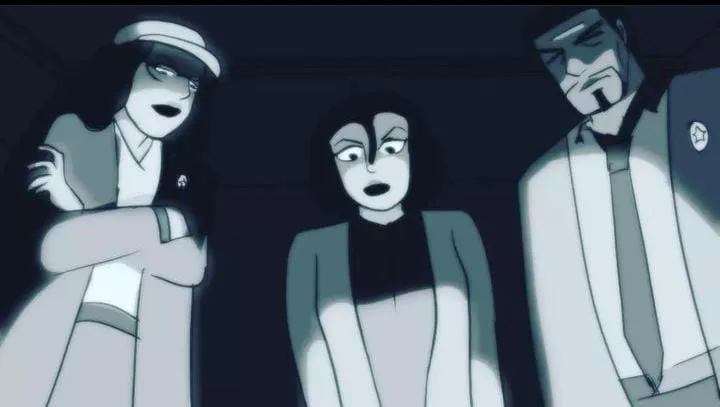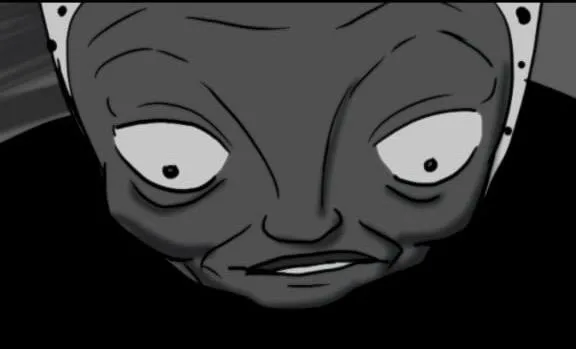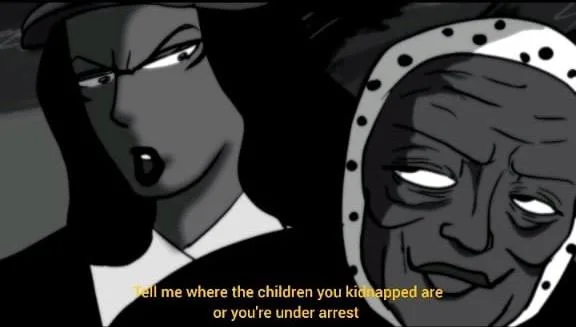Jonathan Oyiriaru’s, known as Reagle, debut short animation delves into problems of humanity with a modernist sci-fic twist.
When the first global Nigerian animation series, ‘Iwaju,’ was released earlier this year, set in a futuristic Nigeria, praise surged for its originality and potential to elevate animation in Africa to the next level. It set the tone for the industry, retaining a sense of a solid Nigerian identity. There is no doubt that African animations are receiving the recognition they deserve worldwide, and Reagle’s ‘Detective Jacqueline: Babushka’ is not to be overlooked. It is unfailingly known for its dramatic scope and beauty–its unique combination of concepts, substance, and style.

Inspired by problems of the contemporary world, Reagle writes the script, boldly presenting his subjective view of child kidnapping. The story follows an older woman named Mathilda Uzodinma (Babushka), who is taken into custody (in a town where she owns a shop) after the local police link an unspecified number of kidnappings to her, to which she attempts to plead innocence despite her chronic psychological disorder–or so we are meant to believe. What starts as a simple interrogation quickly spirals into a messy case that hinges on the confession.
The title is gotten from the names of the main characters, each layering its significance onto his narrative canvas. The film is built entirely from the artist’s studio in Lagos, which is subtly reflected in the one scene interrogation room where most of the action takes place and everything else is seen through its television screens, open doors, and windows. We are drawn into a world that seems extracted from a retro scene – those kinds found in 90s newspapers. Anyone familiar with the works of Kirk Douglas or Lauren Bacall will see similarities to the Classic 1940s film noir and the German expressionist cinema with its emblematic elements – shadows, peculiar angles and femme fatale to which the artist gets inspiration from. This style also proves to be prominent in the world of animation seeing the brilliant works of Dai Sato’s Ergo Proxy and Tensai Okamura’s Darker than Black.

In the first few seconds, we are thrown into the central theme – crime. We see interactions from the detectives suggesting that it is remotely impossible for someone old to be involved in a serious crime. Society expects the older citizens to build important resilience and find healthy ways to maintain their physical and mental health in order to live as long as possible. Detective Jacqueline’s encounters with Mathilda, fraught with memory and promises, resound with years of practice. The conversations, starting as light as having coffee with your grandmother, gain heightened intensity from the proximity of the interrogation room. They are roiled by slip-ups, unanswered questions, uncertainties, frustrations, and unresolved consequences.
The voice actors embody this complexity, and the film suggests a classic feel of suspenseful and evocative narrative that emerges from its visual aesthetics, voices, and script. Chioma ‘Chigul’ Omeruah leaves a lasting impression in her delivery of Babushka’s lines, showcasing a depth of emotion or craziness, as one will call it in this situation. Each line delivery captures the essence of her character, demonstrating an impressive range of transitioning from a lovely old grandmother to a psychotic suspect. The supporting voices characters create the necessary tension needed to move the plot forward with precision, humor and intensity, leaving no room for questions.

‘Detective Jacqueline: Babushka’ uses vintage jazz, swinging its audience back in time. ‘Ain’tMisbehaving: The Fats Waller Musical Show’ jacket sits amid the old record player in the first 21 seconds, which parses the period in time. Borrowed from the Russian term for an older woman ‘Babushka,’ adds layers of depth and strength of the character. These examples indicate the artists intention in portraying the differences of ‘US’ and the common themes that tie us. The animation pays special attention to a specific problem every state, city and community in Nigeria faces, rather than the allure of our differences.
The film, with its dialogue and imagery, hints at political issues, creating a sense of a community under pressure, its residents in a tense and unsteady connection to the city. “…kidnappings are a problem,” Detective Jacqueline tells Babushka, referencing a tremendous hurdle for citizens striving for a sense of security and normalcy in their daily lives. The vulnerability of those children amplifies the urgency of the investigation, heightening the tension and uncertainties. As the story progresses, Reagle presents us with the uncomfortable truth about the fragility of justice. The escape of Babushka, despite the intervention of the supposed detectives with guns and ammo, shows how little or nothing anyone can do when there’s help on the inside – literally three large tentacles burst through her tummy, aiding her escape. This sense of helplessness fiercely sharpens the film: the gap left by her escape leaves a conspicuous confusion and curiosity.

Reagle brings to his audience a fresh and interesting perspective, educating and entertaining in a concise amount of time. Through his observation, his mere 6-minute animated film has gained recognition globally. It was nominated for the film award in 2022 and shown in film festivals, including Creative Africa Nexus Festival (CANEX) Cario, Egypt; AFRIFF; Lagos International Festival of Animation (LIFANIMA), Cape Town International Animation Festival (CTIAF), Lagos Comic Con and Nigerian International Film Summit.
Watch film here
Passcode: BabushkA


